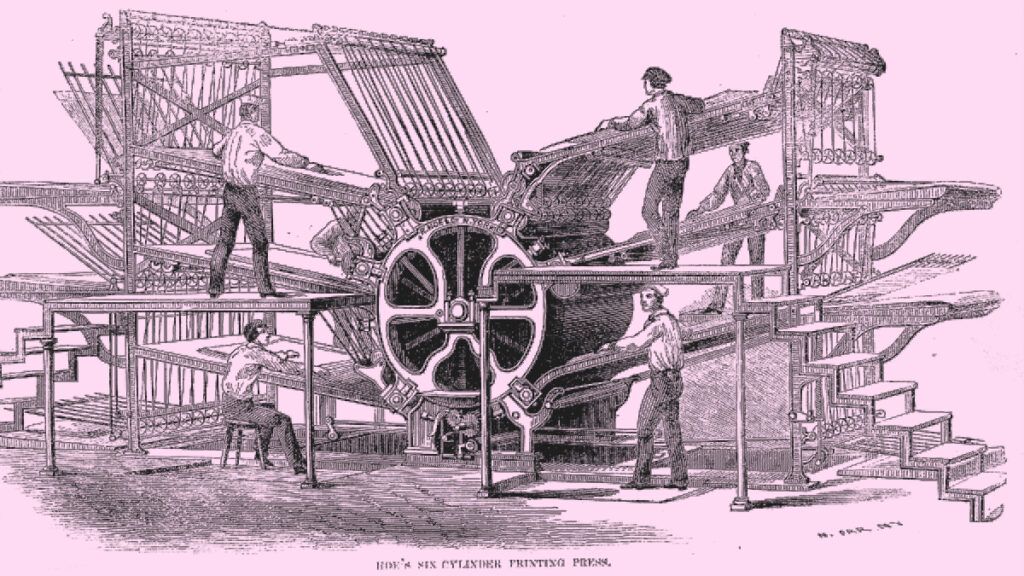The Antitrust, Pro-Journalism Bill That is Neither
Craig Aaron / Dec 14, 2022Craig Aaron is the president and co-CEO of Free Press and Free Press Action.

The Journalism Competition and Preservation Act (JCPA) — the top congressional priority of legacy newspaper publishers and TV broadcasters — suffered a major setback last week when lobbyists failed to get it attached to must-pass defense legislation during a last-minute, lame-duck rush in Washington, D.C.
Surveying the wreckage of her legislation, lead sponsor Sen. Amy Klobuchar (D–MN) lamented, in a paywalled article at Politico, that “we literally are going to lose one-third of the nation’s newspapers by the year 2025. … Unless you think some big national news organization is going to cover your town, there isn’t going to be any news.”
While the local news crisis is real, you shouldn’t mourn the demise of this deeply flawed legislation. In fact, you should call your senators and representatives to make sure the JCPA isn’t resurrected if and when Congress moves an omnibus spending bill before the end of the year.
If you care about the future of local journalism, the JCPA’s downfall is a good outcome, albeit one that tells a depressing story of how media and tech policies are made in Washington.
Sen. Klobuchar's concern is undermined by the reality that her own bill is a massive handout to the very news conglomerates — including Fox Corporation, Sinclair Broadcast Group, Gannett, and the hedge-fund vultures at Alden Global Capital — that have pumped out right-wing propaganda over the public airwaves and obliterated local newsrooms.
The JCPA is an industry-written bill designed to protect the biggest legacy media conglomerates. Its purported benefits won’t reach newsroom workers; it excludes innovative nonprofits; and it forces social-media platforms to pay for the most noxious content from Fox News, Sinclair and the like. (Why some Democrats are fighting so hard to fund the very outlets committed to undermining and unseating them is a mystery.)
The prevailing but deeply cynical political wisdom in Washington is that to pass any media policy, big newspaper and broadcast chains must be at the front of the line for handouts, with maybe a few crumbs going to the smaller, independent news operations still trying to cover local news and serve local communities. The belief is that you’ll never pass legislation in Washington that doesn’t reward the sector’s most powerful corporate lobbyists — in this case, the National Association of Broadcasters and the News Media Alliance.
The behind-the-scenes story of the JCPA is that every time critics like my group, Free Press Action, raised good-faith concerns about the bill, they were ignored or pushed aside. Every revision of the legislation added more favors for the old-line incumbents. For example, the latest bill text attached to that must-pass defense bill was changed to specifically exclude nonprofit news outlets that aren’t public broadcasters — meaning some of the most innovative local newsrooms. Why? Maybe the bill’s proponents didn’t like being questioned about what was in this bill for the little guys. Or perhaps the newspaper and broadcast lobbyists writing the bill just don’t want any future competition.
Similarly, the bill’s drafters largely rejected efforts by the News Guild to put some guardrails on how money taken from the platforms would be spent and ensure more of it actually went to pay reporters. The conglomerates and hedge funds calling the shots have demonstrated time and again that no matter how much money comes in, their priority is squashing salaries and cutting jobs. When revenues increase, they likely prefer to spend the windfall on fat bonus checks and paying down debt from ill-advised mergers and bad business decisions.
There’s a sad irony in publishers demanding the right to collectively bargain with the platforms while literally moving to crush unions at their own shops. The Pittsburgh Post-Gazette’s ringing endorsement of the JCPA while its newsroom is on strike says everything you need to know about whom this bill will benefit. They’re not exactly hiding the ball here.
While industry lobbyists keep making the JCPA worse, the bill isn’t really fixable. Though it’s touted as a pillar in the package of antitrust bills targeting Big Tech, the JCPA is really a pro-collusion bill, a literal exemption from antitrust laws for Big Media. The JCPA also expressly prohibits negotiators from considering the economic benefits that accrue to news-media companies when platforms distribute, aggregate or feature links to their content. This is a dead giveaway that this legislation isn't about fairness, competition or better journalism.
Worse still, convoluted language inserted into the bill to placate conservatives like Sen. Ted Cruz (R-TX), suggests that tech platforms could be sued by outlets like Fox News or Sinclair (or their even more extreme rivals) for reducing or filtering traffic to objectionable content. The bill essentially obligates platforms to pay for objectionable content even if they don’t amplify it. And it undermines necessary content-moderation measures that could shield users from hate, disinformation and conspiracy theories.
With all these problems, fortunately the JCPA has been stopped — at least for now — by a strange-bedfellow coalition of opponents, which includes rank-and-file journalists, small local publishers, free-speech defenders like the ACLU and EFF — and, yes, Google and Meta.
A word on the latter: It’s unusual and uncomfortable for a critic of Big Tech like me to be on the same side of the fence of Meta or the Chamber of Progress. And I can’t help but cringe at the ham-fisted lobbying and disingenuous threats to turn off news content if they don’t get their way in D.C. While the press has covered Big Tech’s astroturfing efforts, there’s far less scrutiny of the (far more effective) lobbying and sock-puppetry of the publishers and broadcasters. Everyone should despise all this stuff, but just don’t pretend it’s one-sided.
You don’t have to be on Mark Zuckerberg’s payroll — and to be clear, Free Press Action doesn’t take any money from Big Tech or Big Media — to have a problem with the JCPA. You just have to read the text.
With the JCPA on the ropes, the bill’s supporters are scolding journalism advocates and telling them that the tradeoffs are worth it, that something is better than nothing, that if it’s bad for Google and Meta it must be good for the rest of us. But this enemy-of-my-enemy approach to policy making is doomed. It will only entrench powerful actors and right-wing propagandists who have shown no interest in investing in serious journalism, responding to community-information needs or sustaining a viable multiracial democracy.
We need to end the willful blindness where any corporate actor or devious politician who claims to be against the tech giants is suddenly a benevolent force. If you actually want to help local communities, then you need policies that confront the power and undue influence of both Fox and Facebook, Gannett and Google (and Comcast and AT&T, too).
What should these policies look like? They must prioritize funding for local accountability journalism and directly support journalists on the ground. They must reckon with the failed market for local journalism and support noncommercial alternatives. They must address the reality that the good old days for journalism weren’t good for most people — and recognize that journalism has done harm to communities of color that needs to be repaired.
Better ideas are out there — from taxing online ads to fund local journalism to letting people vote on how public funds are distributed locally to replanting legacy media with public-service-minded owners to making media reparations. There are promising experiments underway like the New Jersey Civic Information Consortium and California’s new $25-million public investment in local reporting in partnership with UC Berkeley.
Growing these projects and pushing these more ambitious policy ideas closer to reality will take a different strategy and broader coalition that recognizes that the health and safety of our communities — not to mention any hope of a vibrant and functional multiracial democracy — rests on new public investments in civic-minded media. The coalition capable of achieving this vision doesn’t exist yet, but it’s waiting to be built.
What’s clear is that as long as groups like the National Association of Broadcasters and the News Media Alliance are the ones calling the shots and writing the bills on Capitol Hill, we’ll keep hearing that massive giveaways to corporate media are the only option. They aren’t.
So stopping the JCPA — and making sure it doesn’t sneak into the year-end spending bill this month — won’t solve all these problems.
But it’s a good place to start.
Authors
